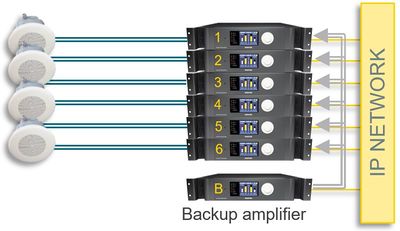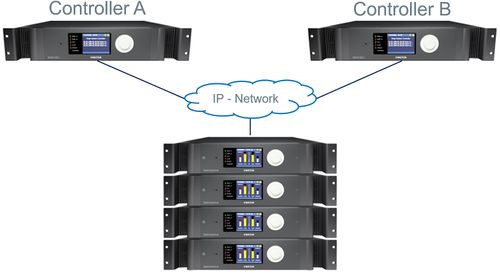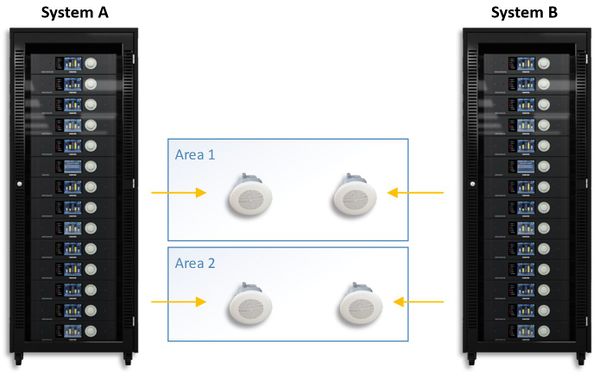Difference between revisions of "Redundancy Funtions"
(→Backup Amplifier) |
(→Redundant Network) |
||
| Line 34: | Line 34: | ||
<br style="clear:both;" /> | <br style="clear:both;" /> | ||
More information about this feature can be found [[A-B System Principle|here]] | More information about this feature can be found [[A-B System Principle|here]] | ||
| − | |||
| − | |||
| − | |||
| − | |||
| − | |||
| − | |||
| − | |||
| − | |||
| − | |||
== Summary == | == Summary == | ||
Revision as of 13:23, 23 October 2019
This article describes different redundancy concepts for PA system in general and for Exigo.
The Exigo system supports several redundancy functions, allowing even a single system to become more redundant.
Depending on different demands that projects may have, there may be a need for one or more redundancy functionality.
Backup Amplifier
This is also refereed to as hot standby amplifier.
The basic concept is that if one amplifier fails, a backup amplifier will take over.
Exigo ENA2200, ENA2400-AC and ENA2400-DC Amplifiers have inbuilt support for backup amplifier switch-over where one amplifier can be designated as backup for up to six other amplifiers.
This functionality is available from Exigo 1.3 and later.
More information about this feature can be found here.
A-B Wiring
To avoid loosing audio coverage in a area if an amplifier fails, it is possible to design the solution with A-B wiring.
The concept is that you design the speaker layout in a given area (typically a zone) so that the speakers are managed from two different amplifiers.
If one of the amplifiers fails you still have audio in 50% of the speakers.
Redundant Controller
The Exigo system controller can also be duplicated (hot standby) to ensure full operation of the system in the event of a faulty system controller.
More information about this feature can be found here.
A-B System
A complete A-B system consists of two complete PA systems that work together as one system.
Both systems will have a System Controller and a number of amplifiers.
The A and the B system must be physically separated.
If one of the system fail you will still have audio coverage.
More information about this feature can be found here
Summary
These examples are the most typical redundancy functionality that is used in PA systems.
It is also possible to combine two or more for even more redundancy.



